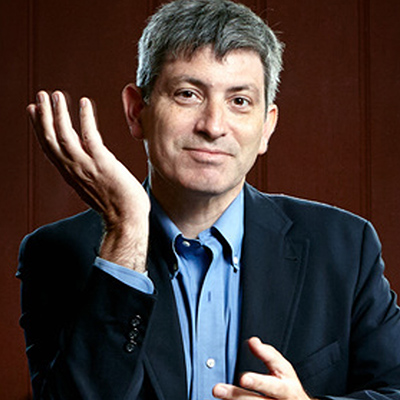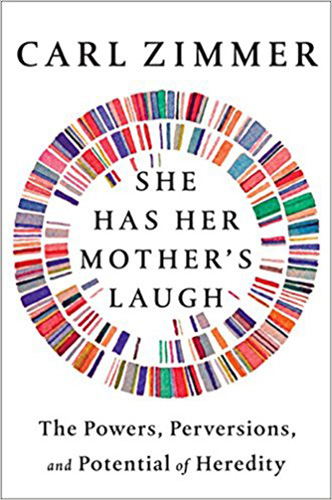Interview with Carl Zimmer


Carl Zimmer
author of "She Has Her Mother's Laugh: The Powers, Perversions, and Potential of Heredity"

Steve Murphy
Executive Producer & Host
Carl Zimmer, author of "She Has Her Mother's Laugh: The Powers, Perversions, and Potential of Heredity"
Carl Zimmer's Website
Carl Zimmer is the author of thirteen books about science. His newest book is She Has Her Mother’s Laugh: The Power, Perversions, and Potential of Heredity. His column Matter appears each week in the New York Times.
Zimmer’s writing has earned a number of awards, including the 2016 Stephen Jay Gould Prize, awarded by the Society for the Study of Evolution to recognize individuals whose sustained efforts have advanced public understanding of evolutionary science. In 2017, he won an Online Journalism Award for his series of articles in which he explored his genome.
A professor adjunct at Yale University, Zimmer is a familiar voice on programs such as Radiolab. He lives in Connecticut with his wife Grace and their children, Charlotte and Veronica. He is, to his knowledge, the only writer after whom a species of tapeworm has been named.
The Book: "She Has Her Mother's Laugh: The Powers, Perversions, and Potential of Heredity"
ISBN: 1101984597
Get the bookAward-winning, celebrated New York Times columnist and science writer Carl Zimmer presents a profoundly original perspective on what we pass along from generation to generation. Charles Darwin played a crucial part in turning heredity into a scientific question, and yet he failed spectacularly to answer it. The birth of genetics in the early 1900s seemed to do precisely that. Gradually, people translated their old notions about heredity into a language of genes. As the technology for studying genes became cheaper, millions of people ordered genetic tests to link themselves to missing parents, to distant ancestors, to ethnic identities…
But, Zimmer writes, “Each of us carries an amalgam of fragments of DNA, stitched together from some of our many ancestors. Each piece has its own ancestry, traveling a different path back through human history. A particular fragment may sometimes be cause for worry, but most of our DNA influences who we are—our appearance, our height, our penchants—in inconceivably subtle ways.” Heredity isn’t just about genes that pass from parent to child. Heredity continues within our own bodies, as a single cell gives rise to trillions of cells that make up our bodies. We say we inherit genes from our ancestors—using a word that once referred to kingdoms and estates—but we inherit other things that matter as much or more to our lives, from microbes to technologies we use to make life more comfortable. We need a new definition of what heredity is and, through Carl Zimmer’s lucid exposition and storytelling, this resounding tour de force delivers it.
Weaving historical and current scientific research, his own experience with his two daughters, and the kind of original reporting expected of one of the world’s best science journalists, Zimmer ultimately unpacks urgent bioethical quandaries arising from new biomedical technologies, but also long-standing presumptions about who we really are and what we can pass on to future generations.